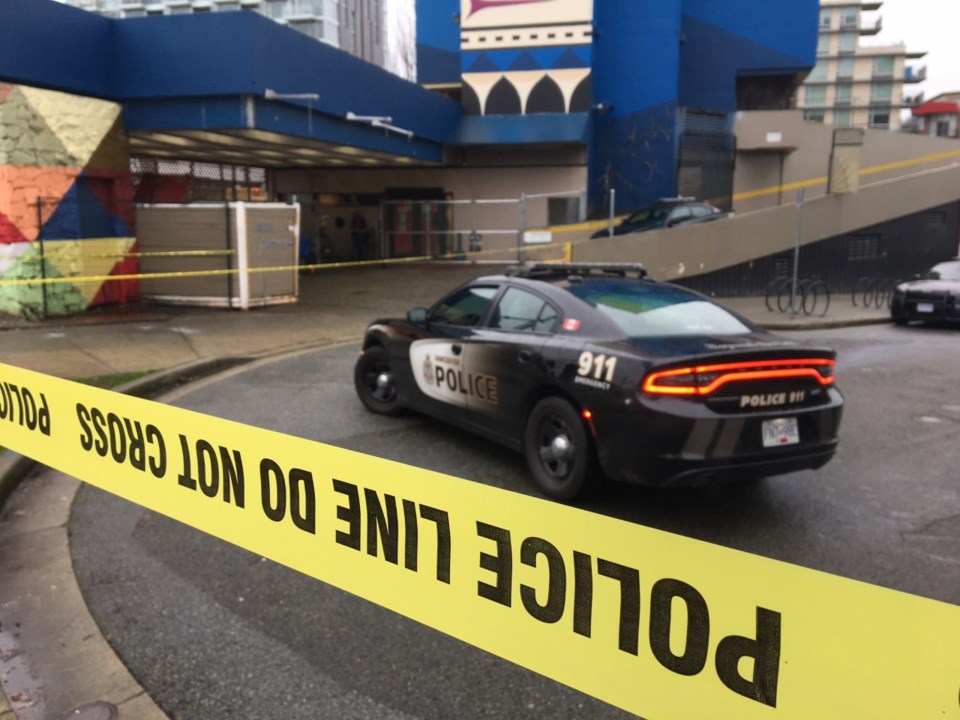A report that went before the Vancouver Police Board Sept. 23 said the $7.6 million projection is based on a $4.6-million “operational funding shortfall” and $3 million related to unfunded benefit rate increases such as WorkSafeBC premiums and extended health care.
“This [$7.6-million] projection is subject to changes as we progress through the year and with emerging priorities in the community such as, but not limited to, escalating violent gang conflict, growing number of protests and changes to COVID-19 provincial health orders with the potential changes to restrictions,” the report said.
In June, as Glacier Media reported, the department predicted it would be over budget by $4.9 million by the end of the year and pointed to city council’s decision in December 2020 not to fully fund its 2021 budget as reason for the over-run.
The majority of council voted in December 2020 to approve a 2021 police budget of $316 million, about $766,000 more than the 2020 budget but $5.6 million less — total figure was $5,689,974 — than the VPD requested to operate the department this year.
If the VPD’s projection holds true at year’s end, it will be the first time in 16 years that the department has failed to balance its budget — and the first time under the leadership of Police Chief Adam Palmer, who has been vocal in his disappointment of council’s decision and said it meant approximately 61 fewer recruits wouldn’t be hired.
“If we wouldn’t have had the reductions to our budget, we would actually be in a good position right now,” the chief told the board last Thursday.
The police board appealed council’s decision to Wayne Rideout, B.C.’s director of police services, who has yet to make a ruling on whether the VPD’s request was warranted.
Mayor Kennedy Stewart, who doubles as chairperson of the police board, told Glacier Media in July that city council couldn’t “put an additional plans in place” until Rideout makes his decision.
A letter and report authored by city manager Paul Mochrie that was sent to Rideout in June warned what topping up the VPD’s budget would mean for the city’s finances.
“Should the ministry decide in favour of the [police board’s] application, the impact on other city services would be significant given the VPD is the largest department in the city,” said the city report obtained by Glacier Media.
“Any increases to the VPD budget would require offsetting reduction in other city services, which given their size would require disproportionate service reductions in those areas.”
At the Sept. 23 board meeting, Palmer elaborated on some of the major drivers of policing costs this year, noting there have been about 600 protests in Vancouver, most of which tied to the environment and COVID-19.
Police have been deployed to up to 15 protests in one weekend and four in one day, said the chief, who added that one protest group — which he didn’t name —has cost the department more than $1 million.
“In the in-camera portion of the meeting, I will give the board more information, but protests are a major red flag in our budget this year and for everybody to be aware of,” the chief said.
Information posted on the VPD’s website in June via a request under the Freedom of Information and Privacy Act said the “No New Normal BC Protest” demonstrations from June 28, 2020 to April 30, 2021 cost $371,613.
The “BC Freedom Mega Rally” on Oct. 17 and 18, 2020 cost $89,967 and the “March for Freedom” protests outside the Vancouver Art Gallery from Nov. 21, 2020 to April 17, 2021 totaled $69,389 in policing costs.
Back in June, the chief told the board the department had already spent “about $2.5 million” this year in deploying officers to protests.
Vancouver police budget statistics supplied to Glacier Media show a steady increase in recent years on money spent to manage protests and demonstrations, with $478,460 in 2018, $1,033,297 in 2019 and $2,835,584 last year.
Palmer said police are also seeing increased costs in responding to gang-related shootings and homicides, including the ongoing investigation into the Sept. 15 homicide of Amandeep Manj in the underground parkade of the Fairmont Pacific Rim hotel.
As for the $3 million in benefit rate increases this year, which include WorkSafeBC premiums and costs related to the Canada pension plan, extended health care and dental, the chief explained that rates aren’t set until the upcoming calendar year.
The past practice of the city is that a mid-year adjustment would be done once rates are determined, effectively adding that money back into the VPD’s budget.
“This is the only year that that hasn’t happened, so far,” Palmer said.
Meanwhile, the city’s expenses are growing faster than revenues and it is a trend that is expected to continue over the next five years, if action is not taken to reduce costs.
That was a warning from Patrice Impey and Colin Knight of the city’s finance team in a presentation they delivered in July to city council.
Knight said the expenditure growth was being driven by several factors, including the need to replace aging water and sewer infrastructure and increases in public safety wages and the region’s utility charges.
Last year, council approved a five per cent property tax hike to balance a $1.597 billion operating budget, which was one per cent or $19 million lower than the 2020 budget. The city accrued a revenue loss of $89 million last year and another $90 million loss is predicted this year.
The VPD is the largest tax-funded department in the city, with 82 per cent of its budget related to salaries and benefits.



